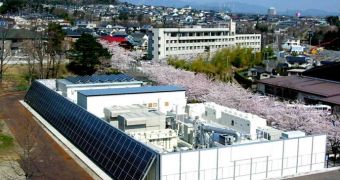A researcher at the University of the Basque Country (UPV/EHU) recently announced the development of a new computer model, which takes into account a number of factors when determining what technology authorities should opt for when it comes to energy production.
Sadly, at this time, financial concerns are the only ones that dictate such decisions, even if the implications of the overall production process spread around the world.
Incorporating factors such environmental protection into the decision-making process has proven to be extremely difficult, as evidenced by the fact that instances when this happens are very rare.
Adding up the costs of raw materials or of the installations for each new power plant is the easiest part of the deal, but considering more abstract aspects is not at all simple.
Speaking of environmental protection, whenever builders and developers do take this factor into account, they tend to leave stuff out of the equation, or perform the entire calculus wrong.
This is why expert Macarena Larrea, who recently defended her PhD thesis at UPV/EHU on this issue, decided to construct the Electra II mathematical model. Electra II is capable of putting environmental cost and other criteria back in their place in the decision-making process.
When these criteria are considered too, the standard ranking of which technologies are the most economic changes drastically, with the focus moving away from fossil fuels, and into the renewable industry.
Details of how Larrea's model functions were presented in the PhD thesis called Internalization of the external costs of electricity production, AlphaGalileo reports.
In addition to environmental concerns, some of the most important factors to consider include politics, competitiveness, supply and resources security, as well as the possible fate of future generations.
According to the expert, the mathematical model shows that the world really needs a diversified series of energy sources, rather than simply rely on just a couple.
Using Electra II, Larrea explains, decision-makers could learn how to select the most relevant technologies from this elevated degree of diversification. She also believes that, for the time being, alternative energies should be used as complements for fossil fuels, rather as replacements.

 14 DAY TRIAL //
14 DAY TRIAL //